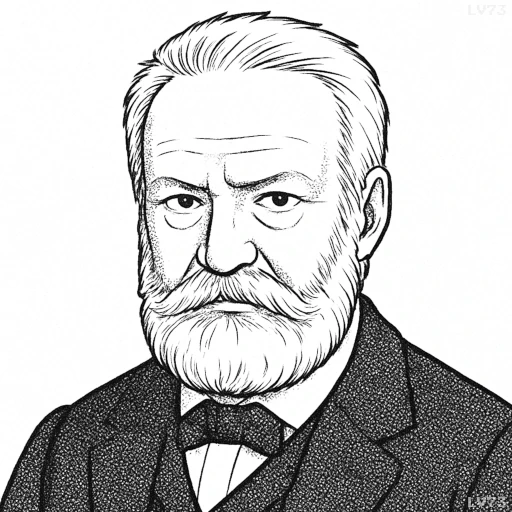“What is history? An echo of the past in the future; a reflex from the future on the past.”

- February 26, 1802 – May 22, 1885
- Born in France
- Author, poet, playwright
table of contents
Quote
“What is history? An echo of the past in the future; a reflex from the future on the past.”
Explanation
In this quote, Victor Hugo offers a profound interpretation of history. He suggests that history is not a linear account of events that simply unfolds over time, but rather an interaction between the past and the future. The “echo of the past in the future” implies that the events and choices from history continue to resonate and influence the future. In turn, the “reflex from the future on the past” suggests that our present understanding and future perspectives can reshape or reinterpret the past, giving it new meaning or significance based on current circumstances.
Hugo is emphasizing that history is not just a static record but a dynamic relationship between what has happened and how we perceive it over time. Our understanding of the past is constantly evolving as we look back with the wisdom or needs of the present, and the future continues to shape the way we interpret and learn from history.
In modern terms, this quote speaks to the fluidity and subjectivity of history. It suggests that history is not merely a collection of facts but a constantly shifting narrative influenced by both our current values and future aspirations. The way we view past events can change over time, shaped by the lens of contemporary experience and the ongoing course of human development. History, therefore, is always alive, evolving, and deeply intertwined with the future as much as it is with the past.
Would you like to share your impressions or related stories about this quote in the comments section?




